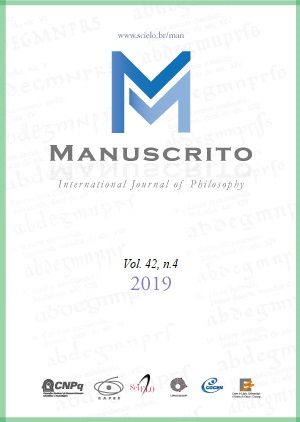Abstract
I present the text at Posterior Analytics (=APo) II.11, 94b8-26, offer a tentative translation, discuss the main construals offered in the literature, and argue for my own interpretation. Some of the general questions I discuss are the following:
1. What is the nature of the explanatory syllogisms offered as examples, especially in the case of the moving and the final cause? Are they scientific demonstrative explanations? In the case of the final cause, are they practical syllogisms? Are they productive?
2. Are we to read into such examples Aristotle’s requirements from APo I.4-6 that demonstrative premisses and conclusions are universal, per se, and necessary? If so, in what way? If such requirements do not apply here, what are the implications for question 1?
3. What, if any, is the advantage of one type of causal explanation over another (e.g., of final over efficient) in cases in which there is causal competition between complementary explanations?
4. What is the relation between the thesis of this chapter, especially the section dedicated to the final cause, and the argument of II.8-10? How is essence (the what-it-is) related to causes? How is explanation/demonstration-based definition related to causal explanation in terms of the four causes?
References
BARNES J. (1994), Aristotle: Posterior Analytics, Oxford: Oxford University Press.
BOLTON R. (1997), ‘The Material Cause: Matter and Explanation in Aristotle’s Natural Science’ in Kullman W. and Follinger S. (eds.), Aristotelische Biologie, Stuttgart.
CHARLES D. (2010), ‘Definition and Explanation in the Posterior Analytics and Metaphysics’ in Charles D. (ed.), Definition in Greek Philosophy, Oxford: Oxford University Press.
CORCILIUS K. (2019), ‘Teleology of the Practical in Aristotle: the Meaning of “ΠΡΑΞΙΣ” ’ Manuscrito, Special Issue: Aristotle on Science and Its Logical and Metaphysical Entanglement.
DENNISTON J. D. (1950), The Greek Particles, Oxford: Oxford University Press, 2nd edition.
FREDE M. (1980), ‘The Original Notion of Cause’ in Schofield M., Burnyeat M., and Barnes J. (eds.), Doubt and Dogmatism: Studies in Hellenistic Epistemology, Oxford: Oxford University Press.
JOHNSON M. R. (2005), Aristotle on Teleology, Oxford: Oxford University Press. LEUNISSEN M. (2010), Aristotle’s Science of Nature, Cambridge: Cambridge University Press.
LEWIS F. (2013), How Aristotle Gets by in Metaphysics Zeta, Oxford: Oxford University Press.
ROSS W. D. (1949), Aristotle’s Prior and Posterior Analytics, Oxford: Oxford University Press.


